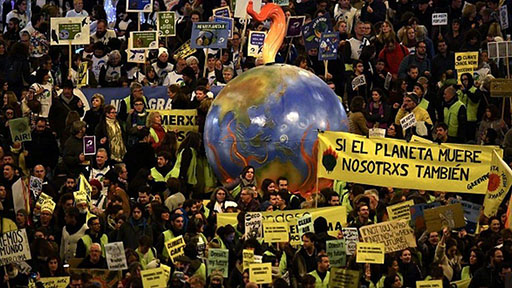Even as the global oil industry’s attention was fixed on developments like the continually unfolding reality of Guyana’s huge and potentially game-changing oil discoveries, the international community was considering the recent United Nations Climate Change engagements as significant disappointments if not failures in terms of delivery of any real progress in its climate change pursuits.
So significant was the disappointment that a Wednesday, December 18, Oil Industry News report on its outcomes ventured that at the end of the deliberations the international effort to rein in fossil-fuel pollution had taken “a step backward.”
The assessment of the outcome of the meeting came after diplomats and climate and energy experts had met in Madrid for a full two weeks following which Oil Industry News’ assessment of the outcome asserted that envoys at the gathering had effectively “watered down language on issues they had agreed on in previous years.
Deploying the customary inoffensive and invariably ineffective diplomatic language, delegates from almost 200 countries, Oil Industry News reported, managed to agree only on the “urgent need” for countries to make deeper cuts in greenhouse gases. They neglected, the report says, to address the need for the deployment of market mechanisms “as a tool for countries to meet their goals.”
The outcome of the Madrid forum, in the language of the report, “undercut principles of the 2015 Paris Agreement on climate change, under which all countries agreed to deliver increasingly ambitious policies to cut pollution.” More than that the Madrid meeting has also been accused of walking back “on a three-decade-old commitment from the richest industrial nations to help developing countries shoulder the costs of global warming.”
Finland’s Environment Minister Krista Mikkonen was unequivocal about the outcome of the forum. There was, she quipped at the end of the forum, “a lot of disappointment with the outcome… No one can be proud. We are really lacking, the big countries, the big economies, to understand that we need action.”
It was always likely that the Madrid forum’s pursuit of a more robust position on the important and urgent climate change decisions would encounter pushback from powerful quarters. It came, the Oil Industry News report says, in the form of “President Donald Trump’s retreat from US pledges to cut emissions,” and the reluctance of “China and other nations… to embrace stiffer language promising tighter emissions pledges.” Both the United States and China, along with Russia, among others, continue to pin their economic growth strategies largely on fossil fuels and tend to be wary about the enthusiasm of the growing army of climate change advocates for whom oil spells the eventual change of life on the planet as we know it.
Going forward, if the momentum of the global climate lobby persists, attention will inevitably shift to emerging ‘oil economies’ like Guyana’s, where a traditionally robust official climate change/green economy could be tempered by the fact that the blessing of oil could help them play ‘catch up’ with developed countries.
In Madrid, while the representatives from the various Energy and Environment Ministries reportedly undertook to work towards limiting temperature increases in the atmosphere, how effective that would be in the global context is probably questionable given that the US and China, particularly, now appear to have set their faces drastically against initiatives that would take the international community in that direction. A comment from United Nations Secretary General Antonio Gutteres that in Madrid “the international community lost an important opportunity to show increased ambition on mitigation, adaptation and finance to tackle the climate crisis,” summed up the general mood on the outcome of the deliberations, leaving the disappointed delegates with no alternative but to try again at next year’s forum in Scotland.
